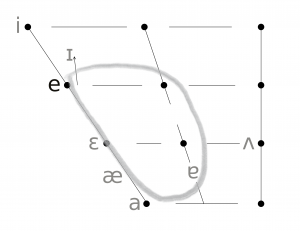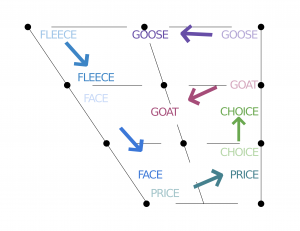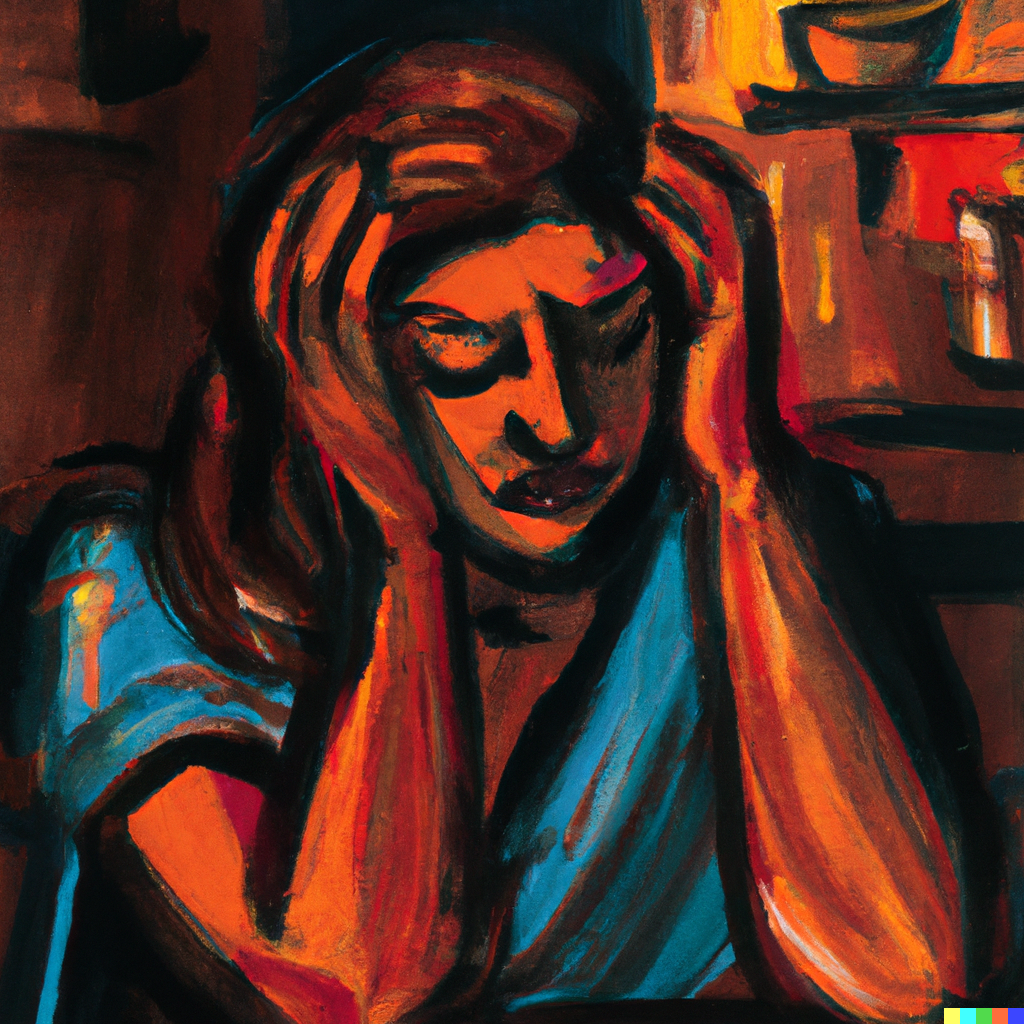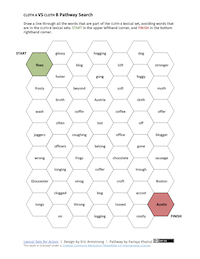14 The FACE Lexical Set
 face is parallel to the goat lexical set: they both can either be realized as a Closing Diphthong or as a Monophthong, and frequently they match in that regard. Closing Diphthongs go from wherever the nucleus starts to a close, narrow coda. In this case, the nucleus of the diphthong is frequently mid-close or mid-open [e ~ ɛ], which then off-glides towards [ɪ̯ ~ i̯]. In accents where its nucleus is more open, face is still the most front and closest of the Closing Diphthongs. Sometimes face is a monophthong, either in very short words said at high speed, such as bait, or in unstressed syllables, which some accents might have in words like maintain, which may be pronounced as /menˈteɪ̯n/, with a monophthong for the first, unstressed syllable and a diphthong for the second, stressed syllable. Also, there are many accents where face is a monophthong in all settings, and its quality is typically in the area of [e ~ ɛ]. The other main accent option is for a “wide” closing diphthong, which begins with a nucleus more in the range of [ɛ ~ æ ~ ɐ], but still offgliding to the front narrow non-syllabic vowels of [ɪ̯ ~ i̯]. face can be in both Free and Checked syllables, both stressed and unstressed.
face is parallel to the goat lexical set: they both can either be realized as a Closing Diphthong or as a Monophthong, and frequently they match in that regard. Closing Diphthongs go from wherever the nucleus starts to a close, narrow coda. In this case, the nucleus of the diphthong is frequently mid-close or mid-open [e ~ ɛ], which then off-glides towards [ɪ̯ ~ i̯]. In accents where its nucleus is more open, face is still the most front and closest of the Closing Diphthongs. Sometimes face is a monophthong, either in very short words said at high speed, such as bait, or in unstressed syllables, which some accents might have in words like maintain, which may be pronounced as /menˈteɪ̯n/, with a monophthong for the first, unstressed syllable and a diphthong for the second, stressed syllable. Also, there are many accents where face is a monophthong in all settings, and its quality is typically in the area of [e ~ ɛ]. The other main accent option is for a “wide” closing diphthong, which begins with a nucleus more in the range of [ɛ ~ æ ~ ɐ], but still offgliding to the front narrow non-syllabic vowels of [ɪ̯ ~ i̯]. face can be in both Free and Checked syllables, both stressed and unstressed.
Many face vowels in unstressed syllables are the result of compound words, such as tea-table, flypaper, prefixes like a- as in agraphia, or suffixes like -ate as in agitate, nominate, mutilate. Though in some cases unstressed face can reduce from a diphthong to a monophthong, it frequently does not.
- 🕊Free: does not require a following consonant, and can exist on its own, e.g. bay
 An unrounded, narrow Closing Diphthong, that moves from mid-close front towards close front.
An unrounded, narrow Closing Diphthong, that moves from mid-close front towards close front.- in stressed and unstressed syllables
Spellings
Wells, in devising the face Lexical Set, created three subgroups that correspond to spellings, which relate to historical spellings. These, in turn, relate to accent varieties that haven’t yet merged the three historical subsets into one.
face Ⓐ: ‹a, aCe›, as in bacon, April, late, fade, mane, which was /aː/ before the Great Vowel Shift (GVS);
face Ⓑ: ‹ai, ay, ei, ey, aig(h), eig(h)›, as in wait, day, rein, they, straight, weight;
face Ⓒ: ‹ea›, as in great, steak, break, yea.
The keyword “stay” has been suggested as an alternate for face Ⓑ and face Ⓒ[1].
Wells identified words associated with a following /r/ (or even a vowel-formerly-known-as-/r/, as we get with non-rhotic accents), that begin with a vowel that is parallel to face and or dress such as care or dairy, which he called the square Lexical Set.
Pronunciations
Across all accents, the nucleus of the face lexical set is pronounced with a broad range of unrounded vowels [e ~ ɛ ~ æ ~ ɐ] with an offglide towards /j/, typically [ɪ̯], and sometimes with more closure—what I call more “bite,” as if you’re biting down on the diphthong—towards [i̯].
The following chart gives you a sense of the rainbow of articulations for the Closing Diphthong.
| Nucleus | Offglide | |
| close | near-close | |
| e̝i̯ | e̝ɪ̯ | |
| close-mid | ei̯ | eɪ̯ |
| e̞i̯ | e̝ɪ̯ | |
| ɛ̝i̯ | ɛ̝ɪ̯ | |
| open-mid | ɛi̯ | ɛɪ̯ |
| ɛ̞i̯ | ɛ̞ɪ̯ | |
| æ̝i̯ | æ̝ɪ̯ | |
| near-open | æi̯ | æɪ̯ |
| æ̞i̯ | æ̞ɪ̯ | |
| a̝i̯ | a̝ɪ̯ | |
| open | ai̯ | aɪ̯ |
| a̞i̯ | a̞ɪ̯ | |
| ɐ̝i̯ | ɐ̞ɪ̯ | |
| near-open central | ɐi̯ | ɐɪ̯ |
| ɐ̞i̯ | ɐ̞ɪ̯ |
Jamaican and other varieties of English from the Caribbean, while often having monophthongal [e], can have an Opening Diphthong for face, with [ɪ̯ɛ ~ ɪ̯e], especially in Jamaican Patois.
For monophthong pronunciations, which can be heard in regions of the north of the US, rural Canada, and more frequently the north of England, parts of Wales, Scotland and Ireland, the range is [e̝ ~ e ~ e̞ ~ ɛ̝ ~ ɛ]. It has the potential for length, so in many transcription schemes it’s marked with a long diacritic, e.g. [eː].
The more open variations of face may be involved with a chain shift, where face has moved into the place of price, which in turn moves into the space of choice, which then crowds out goat and/or goose. These more open pronunciations are frequently heard in the south of the US, the south of England, and much further south: in Australia and New Zealand! (Whether face was the instigator of this chain shift, or whether it was responding to crowding coming from fleece opening up with an onglide is unknown.)

i → ə̯i, eɪ̯ → æɪ̯, aɪ̯ → ɒɪ̯, ɔɪ̯ → oɪ̯, oʊ̯ → əʊ̯, u → ʉ
fleece | face | price | choice | goat | goose
There are possibilities for face to merge with both square and near in non-rhotic Jamaican accents, which also have a square–face merger. In these cases, face is monophthongal [e], and non-rhotic square and near can be smoothed to [e] as well.
Since 1600, most accents have had a merger of face Ⓐ and Ⓑ. However, in some accents that merger never took place, and so they have a monophthong for face Ⓐ, and a diphthong for face Ⓑ.
Personal Pronunciation: Preparation
Before we dig into the nucleus of your face diphthong, let’s just ascertain that you don’t have any variation within the 2 subsets of face. Are the following minimal pairs the same, or different? If they’re different, then you don’t have a merger; if they’re the same, you do!
face Ⓐ vs. face Ⓑ: pane/pain, mane/main, cane/Cain, vane/vain
If they match: you have a merger, and so the challenge for you is to explore trying out a new pronunciation when we get to Alternate Pronunciations. It’s easy to identify through spelling which words belong in which subset, so you probably won’t have much trouble identifying how and when to avoid your personal merger when working on an accent where the subsets are distinct.
If they don’t match: you don’t have the face merger, and so you’re lucky that you have the instinctual ability to distinguish between the two sets. You’ll want to practice making the subsets match, but that’s pretty easy to do. As we go through the Personal Pronunciation review below you’ll need to do it twice: once for face Ⓐ, and once for face Ⓑ.
Personal Pronunciation: Articulation Options
First let’s identify whether you have a monophthong, a diphthong, or possibly both, if face Ⓐ and Ⓑ don’t match. Say the following words slowly, and try to feel/hear whether your face vowel moves, toward [ɪ̯ ~ i̯]:
face Ⓐ: name, made, save, rage
face Ⓑ: may, day, they, weiɡh, gain, main
Note that the diphthong is a subtle shift, a slight closing made by arching the middle of your tongue up toward the roof of your mouth. If you do have a monophthong, it is slightly more likely that face Ⓐ will have it than face Ⓑ, but it is certainly possible for them both to be a monophthong!
Monophthong or Closing Diphthong: Now that we know whether you have a diphthong or a monophthong, let’s try to figure out what your face monophthong, or the nucleus of your diphthong is. (If your accent is from the Caribbean, jump down to “Opening Diphthong” below to explore your sound.) The beginning of face should have no lip rounding. Begin by exploring the first letter of the alphabet: A. If it’s a diphthong, lengthen the nucleus, the start of the diphthong; if it’s a monophthong, just hang out there for a moment. If your pitch drops as you say it, it can help to intone the sound on one “note” or pitch so you don’t get distracted by the change of melody. You could use a word like hey, or repeat the words above. Use an audio or video recorder to experiment on your own, or work with a classmate, friend, coach or teacher to identify how face in your speech compares with face in others’ speech. Next, subtly shift face around in the vowel space in tiny increments—up, forwards, down, and back—before falling away to your offglide if you have one. You should feel the top surface of the front of your tongue moving delicately up and down as you experiment while keeping your tongue tip behind your lower front teeth. Notice how the blade of your tongue moves towards/away from your alveolar ridge and hard palate, making more or less space in the front of your mouth. Explore the vertical dimension from [e̝], sliding through [e, e̞, ɛ̝, ɛ, ɛ̞, æ̝, æ, æ̞], etc., slowly moving lower and lower: can you find your starting place? Once you’ve locked onto it, rock up and down, above and below, more close, more open. Where is your starting spot? Compare face with dress (compare dread with drain) or trap (try tap and tape), and see how great the contrast is between the nuclei of these vowel sounds.
Opening Diphthong: You have an opening diphthong if your mouth opens—i.e. there is more space between the top surface of your tongue and the roof of your mouth—while you say the face vowel. Just because someone is from the West Indies does not guarantee that they will have this variation! Explore the following words to see whether this opening quality happens equally on all words: face Ⓐ: name, made, save, rage; face Ⓑ: may, day, they, weiɡh, gain, main. Pick the word that has the greatest shift from the beginning to the end of the vowel. Now, lengthen the beginning of your diphthong and try to figure out where it begins. Subtly shift face around in the vowel space—up, forwards, down, and back—in tiny movements, before falling away to the second half of your diphthong. Try to feel the top surface of the front of your tongue moving delicately up and down as you experiment while keeping your tongue tip behind your lower front teeth. Notice how the blade of your tongue moves towards/away from your alveolar ridge and hard palate, making more or less space in the front of your mouth. Explore the vertical dimension from [i̝], sliding through [i, i̞, ɪ̝, ɪ, ɪ̞], etc., slowly moving lower and lower: can you find your starting place? Once you’ve locked onto it, rock up and down, above and below, more close, more open. Where is your starting spot?
Offglide: If you have an offglide, let’s focus on that now. Where do you end? This is much harder to ascertain, and when speakers are being more emphatic, they more resort to a more extreme articulation of the offglide.
 It might be worth recording some words at regular speed and then using software (such as the free Audacity app) to slow down the word to see what you do. It’s always best to put the word you’re exploring in the middle of a phrase when you do this, as words at the beginning or end of a phrase can be affected by prosodic effects in those regions. Something like “The word ____ is interesting” is likely to get you a pretty normal pronunciation.
It might be worth recording some words at regular speed and then using software (such as the free Audacity app) to slow down the word to see what you do. It’s always best to put the word you’re exploring in the middle of a phrase when you do this, as words at the beginning or end of a phrase can be affected by prosodic effects in those regions. Something like “The word ____ is interesting” is likely to get you a pretty normal pronunciation.
For closing diphthongs, this vowel will be quite close, in the range of [i] or [ɪ]. It might also be somewhat reduced, toward the middle of the mouth or mid-centralized [ɪ̽], or slightly further back or centralized [ɪ̈]. For opening diphthongs, this vowel will be more open, usually in the range of [e ~ ɛ].
Transcribing face: Decide which vowel symbol best suits the nucleus of your face:
Narrow Closing Diphthong: [e, ɛ]
Wide Closing Diphthong: [æ, a, ɐ]
Opening Diphthong: [i, ɪ]
If your face nucleus is… (use whichever vowel symbol is appropriate for you)
- high, use the raised diacritic [ e̝ ], a small T pointing up
- open, use the lowered diacritic [ e̞ ], a small T pointing down
- pushed forward, use the advanced diacritic [ e̟ ], a tiny plus sign +
- pulled back, use the retracted diacritic [ e̠ ], a tiny minus sign –
- if you add lip-spreadinɡ, use the lip spreadinɡ diacritic [ e͍], a tiny two-headed arrow, which represents the lips spreading left and right
If you have a closing face diphthong, your coda might be
- close front, so use a lower-case i, [ i̯ ]
- nearly close nearly front, so use a small-cap I, [ ɪ̯ ]
If you have an opening face diphthong, your offglide might be
- mid-close, so use a lower-case e, [e]
- mid-open, so use an epsilon, [ɛ]
Alternate Pronunciations
Experiment with the face Word Lists, Phrases and Sentences with the following (unrounded) face options:
As you move the vowels in these directions, see whether that modified oral posture might inspire you to move the articulation of consonants and other vowels in the word in similar ways. Does it remind you of an accent other than your own?
Word Lists for face Ⓑ in a Free Syllable, at the end of a word
KEY: ◾︎face in stressed syllable ◽︎face in unstressed syllable
Word Lists for face, sorted by the consonant that follows
KEY: ◾︎face in stressed syllable ◽︎face in unstressed syllable
PLOSIVES
-p
-b
-t
-d
-k
-ɡ
AFFRICATES
-tʃ
-dʒ
NASALS
-m
-n
-ŋ
FRICATIVES
-θ
-ð
-f
-v
-s
-z
-ʃ
-ʒ
-l/ɫ
-ɹ
-w
Short Phrases
- A great place to stay.
- The rail at the tail of the sailboat.
- Today’s the day!
- No pain, no gain.
- Don’t cut the main brachial vein!
- They’ve won the space race.
- He claims to feel ashamed
- Why did he call the investigator A Famous Shamus?
- Drain the rain gauge.
- A strange pain in my brain.
- The baby’s name is April.
- Be patient while I’m shaving.
- They satiated their hunger by eating voraciously.
- Acacia trees make up 8% of Australia’s forests.
- They call Raymond James Stadium in Tampa Bay “Ray Jay”.

Sentences
Level 1
Short with 2-3 words, underlined
- I used a safety-pin to tighten the waist of my bathing suit.
- What’s the name of the angel in that painting?
- Blake is moving to San Diego after his next payday.
- The plane from Kuwait appeared on the radar.
- Gabriel wore an apron while they cooked the steak.
Level 2
Short with 4-5 words, underlined
- Aisha* felt Frazer’s street racing was crazy.
- My boss tried to justify the insanely low wages after I complained to HR.
- David Rose explained that he didn’t have much to his name, but that he did have taste.
- She gazed at the airplane safety video while digging her nails into the armrests.
- After Jamie pushed him, Leighton fell into the haystack up to his waist.
Level 3
Medium with 3-4 words, not underlined
- Our dog Mabel hates her cage.
- The lady feared the 5G radio towers were a major source of radiation.
- The late, great Jean Stapleton was a saint.
- Will Kate relocate to the United States for her new job?
- In his rage, Cain murdered his brother, Abel.
Level 4
Hard with 4-6 words, not underlined
- Yesterday we stayed at Two Bays Beach outside Saint David Parish in Grenada.
- We paid £98 for the Eurotunnel train, under the Dover strait to Calais.
- Ojibwe playwright Drew Hayden Taylor is from Curve Lake First Nation.
- Clay and José’s baby Rae is going to start daycare in May.
- Rachel signed the disclaimer before her dalmation got the rabies shot.
Mergers
face Ⓐ –face Ⓑ (pane-pain) Merger: Though face Ⓐ and Ⓑ merged for many varieties of English around 1600—known colloquially as the pane–pain merger—there are still a few regional accents where they are not merged. East Anglia, South Wales, and Newfoundland are reported to lack the merger; historical Norfolk English also used to lack the merger. In these cases, face Ⓐ ‹aCe› is pronounced with the monophthong pronunciation, [e], while face Ⓑ ‹ai, ay, ei, ey, aig(h), eig(h)› has the diphthong pronunciation, generally more open, [ɛɪ̯].
If you have this merger, then try to differentiate the face Ⓐ [e] from the face Ⓑ [ɛɪ̯]words in this sentence.
face Ⓐ vs. face Ⓑ: pane/pain, mane/main, cane/Cain, vane/vain
-
- Mainly Raine was vain about the mane on the horse on his weathervane.
- It’s a pain that Mr. Caine broke the window pane with his cane.
- The lip-sync battles on RuPaul’s Drag Race are always crazy and raise the stakes.
- On Monday, I heard my favourite band, Mayday Parade on the radio.
- James claims Raymond is the one to blame.
meet-meat Merger: face Ⓒ ‹ea› words were historically paired with fleece Ⓑ words, which also have ‹ea›, but the latter group then merged with ‹ee› words (with [i]), and so the two groups became distinct. Wells notes that they were homophonous in English poetry even into the 18th century, making survey rhyme with sea, for example. See fleece for more information on this variation of fleece, which still exists in some accents.
-
- On my lunch break, I treated myself to some steak at the BBQ place down the street.
- Magic’s Pawn by Mercedes Lackey is a such a great book, I could read it on repeat.
- The breakout team in the state’s volleyball league ate great steak at the end of the season.
Splits
There are no known Splits of the face Lexical Set.
Review
Pathway Puzzles
Pathway Puzzles allow you to practice finding members of a lexical set. Choose the next cell with the FIRST lexical set word to make a pathway from the START of the puzzle down to the FINISH. Open the KEY document to see the solution, and check your work. Pathway Puzzles were created by Farisya Khairul, through support from a AMPD Minor Research Grant.
- Robert Penhallurick did so in Welsh chapter of Schneider, Edgar W, and Bernd Kortmann. A Handbook of Varieties of English: A Multimedia Reference Tool. Berlin: Mouton de Gruyter, 2004. Print. ↵
A diphthong where the mouth/tongue closes from the nucleus (which is more open) to the coda (which is more close). The opposite is an opening diphthong.
A single vowel segment that is "steady-state," i.e. that does not change. The opposite of a diphthong (2 sounds) or triphthong (3 sounds).
A diphthong where the second component (offglide or coda) is more open than the first component (nucleus). Most English accents feature Closing Diphthongs, that move towards /j/ or /w/ (though usually never quite making it all the way there.)
A phonological change within an accent where a phoneme moves into the space vacated by another phoneme that has already moved. These can include multiple items as moving in concert. There are two sorts of "chain shifts", push shifts, and drag/pull shifts.
A consonant that is between two vowels; another word for "medial".


